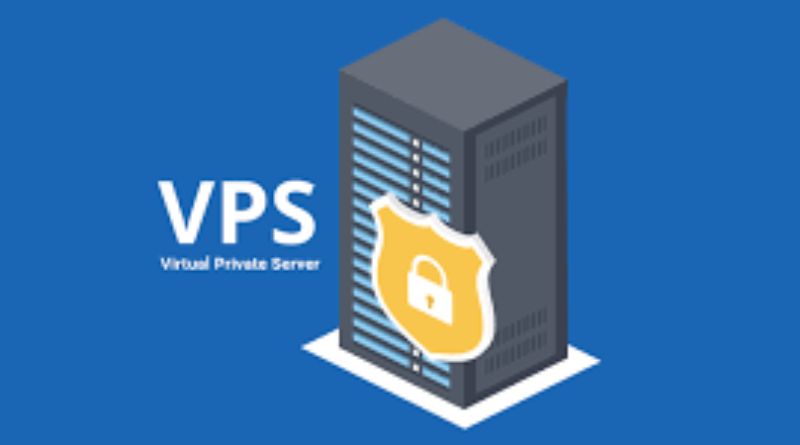Things to Consider When Finding the Best VPS Provider
When you need a virtual private server, or VPS for short, you’ll want to make sure that you choose the best provider. The right provider can help you meet your business needs and grow as your company does. If you’re looking to get more out of your VPS but aren’t sure where to start, here are some things to consider when searching for the best provider:
Server location
Think about where your target audience is located and make sure you choose a server location that’s close to it. It’s also important to select a server location with low latency (the time it takes for information to travel from one place to another) so that your website loads quickly and efficiently. The last thing you want is for visitors to get frustrated trying to access your website, but this can happen if the connection between their computer and yours is slow or unreliable.
Think about what kind of bandwidth you need for hosting as well. Bandwidth refers to how much data can be sent through an internet connection at once, so if there’s too little available space on the pipe that feeds into your cloud VPS, then users might find themselves unable to access certain pages or features on their own websites because they’re being flooded by other sites’ traffic. If they happen upon one particular site while searching Google Images or YouTube—and then click through those links toward another webpage within the same domain (as opposed to other domains altogether)—then even more demand may be placed upon those connections between different machines within your network infrastructure!
Bandwidth
Bandwidth is the amount of data that can be transferred over a network in a given time period. It’s measured in bits per second (bps), and it represents how quickly you can transfer files across your internet connection.
In addition to serving as an indicator of speed, bandwidth is used by businesses and consumers alike to measure their internet usage so they can avoid exceeding their allotted monthly limits. For example, if you have a VPS with 1 TB of data transfer per month and you download more than that limit in any given month, your service provider may charge extra for using up all that bandwidth—so it’s important to know what your plan includes when making comparisons between providers.
Scalability
You need to make sure that your provider allows you to scale up or down as needed. While this is easy when you’re starting out, it can be much more difficult later on if your business grows quickly.
There are some things that are unavoidable in terms of capacity and scalability: from time to time, you will want to upgrade the RAM, CPU, storage space and IP addresses allocated with your VPS. You should make sure that these upgrades are available for purchase so that you don’t have to worry about being stuck with an undersized system when traffic spikes unexpectedly.
User support
When choosing a VPS provider, you should also consider their customer support. Support is an important factor to consider when picking a VPS provider due to the fact that you will be spending a lot of time working with them, so it’s important that they can provide you with adequate help.
The following are some questions that can help you determine if the support is good:
> Is it responsive?
> Are they knowledgeable about their product? Do they know how to configure it and address problems? Can they assist with configuring applications like WordPress or MySQL databases properly?
> Are they helpful? Does the support staff take time out of their day to help me whenever I ask them something? Or do they just give me canned responses without actually addressing my question or problem at hand (e.g., “Have you done x yet?”). In other words, does the support team go above and beyond for its customers; does it treat them as individuals instead of merely numbers on a ticket queue or email list!
Security
Security is one of the most important aspects to consider when choosing a VPS provider. A good VPS provider offers security features such as SSL encryption, firewalls, intrusion detection and prevention systems, spammers and hackers filters, IP address monitoring and more.
A good VPS provider should also be certified by security authorities such as the Payment Card Industry Data Security Standard (PCI DSS) or the Cloud Security Alliance (CSA). Furthermore, it should have a security policy that clearly explains how you can remotely monitor its servers and how they handle customer data. Some providers offer a 24/7 team which will respond to any security issues as soon as possible; others provide customers with their own access rights so they can manage their hosting environment without having to call anyone else for help.
The best way to determine whether or not a VPS provider has good security measures in place is by reading independent reviews from other users who have experience using their services before making your own decision about whether or not it’s worth signing up for one yourself.”
Make sure you can fulfill your requirements.
You should ensure that you can fulfill your requirements before moving forward with any provider. A good way to do this is to check the provider’s website for information about their hardware and network capabilities, as well as their server locations. You should also consult online reviews and ask friends or colleagues who have used them. Finally, if you are looking for a VPS provider in your local area, speak with an IT professional at your place of business (or even an experienced freelancer).
Conclusion
In this article, we’ve discussed some of the most important criteria you should consider when choosing a VPS provider. We hope that these tips will help you find the right provider for your needs!






